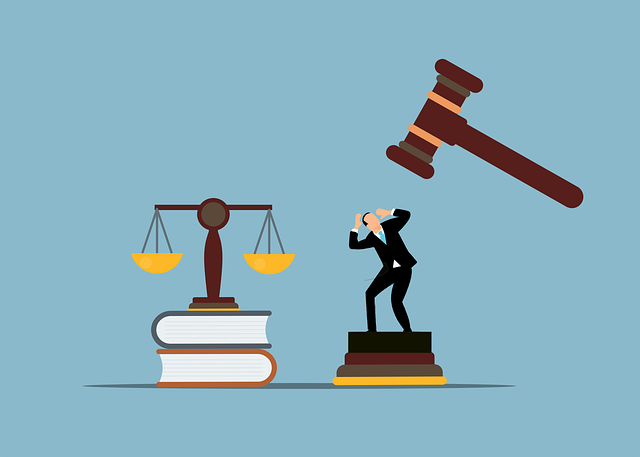Criminal defense attorneys are vital guardians of justice, providing legal representation and navigating complex systems for individuals facing criminal charges. They ensure fair treatment, defend against accusations, and guide clients through intricate legal procedures, including evidence gathering, witness interviews, and strategic pleas or trials. In white-collar crimes, they employ expert insights and challenge inadmissible testimony. For intellectual property disputes, a skilled criminal defense attorney specializing in IP cases can negotiate settlements or advocate in court, offering the best outcomes. Remember, facing criminal charges? You have options; don't proceed alone.
- Understanding Criminal Defense Attorneys: Their Role and Responsibilities
- Steps to Choose the Right Criminal Defense Attorney for Your Case
- The Legal Process: From Arrest to Trial, What to Expect
- Building a Strong Defense Strategy: Common Tactics Used by Criminal Defense Lawyers
- Resources and Support: Assistance for Individuals Facing Criminal Charges
Understanding Criminal Defense Attorneys: Their Role and Responsibilities
Criminal Defense Attorneys play a pivotal role in ensuring justice and protecting the rights of individuals accused of criminal offenses. Their primary responsibility is to provide legal representation, guiding their clients through the intricate complexities of the criminal justice system. These attorneys are advocates who strive for their clients’ freedom and fair treatment, upholding the principles of a just society.
Beyond defending against charges, these legal professionals also counsel their clients on potential consequences, help prepare robust defenses, and represent them in court. Their expertise extends to understanding the law, interpreting evidence, and navigating the sometimes labyrinthine procedures within the system. By employing strategic tactics, they aim to achieve extraordinary results for their clients, not just within the confines of a courtroom but also within the broader philanthropic and political communities.
Steps to Choose the Right Criminal Defense Attorney for Your Case
Choosing the right criminal defense attorney is a critical step in navigating your legal case. The first steps involve gathering information and understanding your specific needs. Research thoroughly, seeking referrals from trusted sources or consulting with legal professionals who can guide you based on their expertise. Ensure the attorney has an unprecedented track record, especially in cases similar to yours, focusing on achievements like successful outcomes, reduced charges, or dismissed cases.
Additionally, consider the lawyer’s areas of specialization within criminal defense, such as white-collar crimes or specific types of offenses. Look for an attorney with a proven ability to achieve extraordinary results, who will fight aggressively yet ethically on your behalf. Interviews with potential representatives can help you gauge their communication style, understanding of your case, and commitment to your freedom.
The Legal Process: From Arrest to Trial, What to Expect
The legal process for criminal defendants is a complex journey that begins with an arrest and can lead to a trial. When facing criminal charges, understanding what to expect at each step is crucial for those seeking white collar defense or protection against white collar and economic crimes.
After an arrest, the first step in the legal process is filing a formal charge, often initiated by a grand jury review. This is where the accused’s rights are read to them, and they must decide whether to plead guilty or not guilty. If a trial is inevitable, the defense team will begin gathering evidence, interviewing witnesses, and crafting a strategy. Throughout all stages of the investigative and enforcement process, it’s vital to have a competent attorney by your side who can guide you through each phase, ensuring your rights are protected and providing the best possible outcome in court.
Building a Strong Defense Strategy: Common Tactics Used by Criminal Defense Lawyers
Building a strong defense strategy is paramount for criminal defense attorneys. They employ various tactics to challenge the prosecution’s case and protect their client’s rights. One common approach involves thoroughly examining the evidence, often with experts in fields like forensic science or ballistics, to uncover any inconsistencies or weaknesses. Additionally, they may use the “reasonableness” standard, arguing that the client’s actions could be interpreted differently under reasonable circumstances.
Another tactic is to challenge the admissibility of evidence through motions and objections during trials. This includes questioning the methodology behind scientific tests or attacking the credibility of eyewitness testimonies. Moreover, criminal defense lawyers often explore alternative explanations for the alleged crimes, especially in white-collar cases where complex financial transactions are involved. By employing these strategies across the country, they ensure that their clients receive a fair trial and, when possible, achieve favorable outcomes, even in the face of substantial charges.
Resources and Support: Assistance for Individuals Facing Criminal Charges
When an individual faces criminal charges, it’s crucial to understand that they’re not alone. A robust support system is integral to navigating the complex legal landscape. Many resources are available to assist those accused, from public defenders and legal aid organizations to non-profit groups specializing in specific types of cases, like white-collar defense. These entities can offer invaluable guidance, ensuring individuals understand their rights and options throughout all stages of the investigative and enforcement process.
For those considering a more proactive approach, especially if charges involve intellectual property disputes, there are steps to file a lawsuit. This process requires meticulous planning and legal expertise. Engaging a skilled criminal defense attorney who specializes in intellectual property cases is a strategic move. They can help build a robust defense, negotiating settlements or advocating for the accused in court, ensuring the best possible outcome.
In navigating the complex criminal justice system, understanding the role of a Criminal Defense Attorney is paramount. From initial consultations to trial strategies, this article has provided valuable insights into the process and the resources available. For those facing charges, choosing the right legal counsel can be transformative. By following the steps outlined for selecting an attorney and staying informed about your rights and options, individuals can navigate their legal journey with confidence. Remember, a well-prepared defense strategy is key to ensuring the best possible outcome, whether it involves challenging evidence, negotiating plea deals, or presenting a robust case in court.






